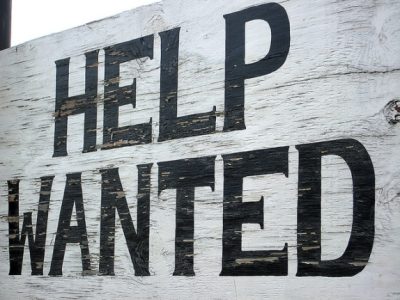Economic Impact
Immigrants are essential to the U.S. economy, filling roles from high-skilled tech sectors to agricultural labor and driving economic growth. They also contribute to the tax base and consumer spending. We champion reform that will maximize this effect and create a more diverse and competitive workforce.

New Report Predicts Continuing Integration of Immigrants into U.S. Society
Anti-immigrant activists like to pretend that immigrants are destined to be poor and to never successfully integrate into U.S. society. However, a new report from the Center for American Progress (CAP) concludes that, in reality, “immigrants are integrating into American life, learning English, and becoming homeowners.” When socioeconomic advancement is tracked over time, it becomes clear that “far from a life in poverty, immigrants are exemplifying the American Dream.” The report, entitled Assimilation Tomorrow, was co-authored by renowned demographer Dowell Myers (a professor in the School of Policy, Planning, and Development at the University of Southern California) and by John Pitkin (president of Analysis and Forecasting, Inc., in Cambridge, Massachusetts). This report is the companion piece to another study which was released by CAP last year, entitled Assimilation Today. Read More

Non-Citizens Eager to Serve in U.S. Military Blocked by Government Bureaucracy
BY MARGARET D. STOCK, COUNSEL TO THE FIRM, LANE POWELL PC This Veterans Day, we celebrate those who have proudly served in the U.S. military, including immigrants. Immigrants have long served in all branches of the U.S. military as infantry soldiers, medics, foreign-language translators, and in every other job open to them. At last count, foreign-born service members made up about 8% of the 1.4 million military personnel on active duty. However, some highly qualified non-citizens have been blocked from serving due to the Obama Administration’s suspension of a recruiting program called the Military Accessions Vital to the National Interest (MAVNI). Frustrated by the government bureaucracy responsible for halting MAVNI, those non-citizen volunteers are petitioning the government in hopes of reopening the program. Read More

Even Facebook Feels Brunt of Broken U.S. Immigration Policy
You know things are bad when a company as popular as Facebook has problems finding qualified talent. In a recent interview, Facebook’s chief operating officer, Sheryl Sandberg, remarked that our outdated immigration policy is a big reason Silicon Valley tech companies are fighting each other for highly skilled workers. Current immigration policy limits high-skilled worker visas (H-1B) to only 65,000 per year—a number that hardly meets demand. Even technology giant Microsoft recently testified before Congress that current immigration policies make finding talent a serious challenge. Until lawmakers revamp our outdated immigration system, technology companies like Facebook and Microsoft will continue to lose out on the foreign talent they need to stay ahead of the curve. Read More

Bad for Business: How Alabama’s Anti-Immigrant Law Stifles State Economy
Although key provisions of Alabama’s HB 56 are on hold while its constitutionality is being tested in the courts, evidence is mounting of the growing fiscal and economic impact of the new law. State economic experts and business leaders agree that the law has already caused hardship for Alabama’s businesses and citizens. Read More

Rebooting the American Dream: The Role of Immigration in a 21st Century Economy
There is plenty of evidence that immigration helps to fuel the U.S. economy, just as it has throughout our history. Immigrants continue to play an important role in the economy as workers, entrepreneurs, taxpayers, and consumers. However, most observers agree that our current immigration system is outdated and dysfunctional, making it more difficult for the U.S. to compete in the global marketplace. The last time Congress made significant changes to the employment-based immigration system was 1990, when the Immigration Act of 1990 created the five-tiered employment-based immigration system and the numerical limits used today. Our immigration system needs to be updated and overhauled, but inflamed rhetoric often obscures reform efforts. The first step in reforming our immigration system is to understand the basic facts surrounding the debate. This report seeks to answer some basic questions about the role of immigration in today’s economy. Read the Executive Summary Read the Full Report Read More

Congressional Members to Join Civil Rights Groups in Fight Against Alabama’s “Juan Crow” Law
In the days following passage of Alabama’s extreme immigration law (HB 56), many business, religious and civil rights leaders spoke out about the law’s damaging impact on immigrant communities, farms, businesses, and schools. Since then, many notable community and civil rights leaders have stepped forward to add their voice to those demanding a repeal of the law. The Alabama NAACP, for example, recently joined immigrant rights groups to call for an end to what one African American minister described as “Alabama’s worst times since the days of segregation and Jim Crow.” This week, Illinois Congressman Luis Gutierrez met with members of several congressional caucuses—Hispanic, Black, Asian Pacific American and Progressive—to address what he calls Alabama’s “civil rights emergency.” Read More

A Small Step Toward Reform: Bipartisan Bill Seeks to Raise Per Country Immigration Caps
An immigration bill introduced by Congressmen Lamar Smith and Jason Chaffetz and supported by Democrats may actually have a chance at passing in Congress. Scheduled for a mark up this week, the bill (H.R. 3012) would make small but significant changes to the way green cards are distributed by eliminating per country numerical limits on employment-based green cards and raising the limits on family-based green cards which go to immigrants from each country. Read More

Some Alabama Businesses Having Trouble Replacing Immigrant Workers
Just two weeks after Alabama’s extreme immigration law (HB 56) went into effect, many are reporting an exodus of immigrants, Latinos and their families from the state. While HB 56 supporters cheer the exodus as a victory, many Alabama businesses say they are left without an adequate workforce. Despite assurances from Governor Bentley that U.S. citizens will gladly take those jobs, Alabama farmers, meat processors and housing contractors are finding that U.S. citizen or legal workers are either not willing or able to take those jobs—leaving fruit to rot on the vine and home reconstructions projects unfinished. Not only will this hurt Alabama business in the short term, economists say, but will shrink the state’s economy and productivity over time. Read More

Fiscally Irresponsible: Immigration Enforcement without Reform Wastes Taxpayer Dollars
Many political pundits, GOP presidential aspirants, and Members of Congress want to have it both ways when it comes to federal spending on immigration. On the one hand, there is much talk about the need for fiscal austerity, and a Congressional “super-committee” is currently working on slashing federal spending in order to reduce the deficit. On the other hand, even though the Department of Homeland Security (DHS) just announced a record high number of deportations, some still want to increase federal spending on immigration enforcement; putting more Border Patrol boots on the ground, completing the border fence, and deploying an array of high-tech gadgetry. However, they miss one very important fact: piling on more immigration enforcement without immigration reform is a practical and fiscal dead-end. Read More

Dayton, Ohio Passes Plan to Revitalize Economy through Immigrant Integration
Shortly after Alabama began implementing their anti-immigration law (HB 56), Dayton, Ohio passed legislation that welcomes and integrates immigrants with the hope that they will revitalize their slowing economy. Faced with a declining population, Dayton’s City Commission voted unanimously last week to adopt the Welcome Dayton Plan—a plan that is tapping into the very economic stimulus that Alabama is driving out. Read More
Make a contribution
Make a direct impact on the lives of immigrants.
